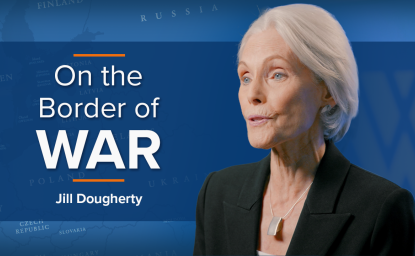While China has emerged as a major power in the international community, some mixed signals are appearing domestically. Calls for genuine political reform remain strong, but there has been an equally strong appeal to revive the spirit of Mao Zedong and to reverse the reform-and-opening policy that introduced market economy into China's planned economy system 30 years ago.
Regress to the Mao era? For many, it sounds like a joke, given that the reform-and-opening policy which started from late 1970s was based on the common view that Mao's ideology had nearly driven the country to bankruptcy. However, the shadow of Mao Zedong lurks in the air again, and calls for returning to the Mao era are growing.
China clearly has two schools of thought on the Communist Party's achievements, especially when we look at the political and social views expressed during celebration of the Communist China's 60th anniversary on October 1, 2009. Until recently, the history of Communist China was commonly divided into two three-decade periods. The first refers to the period from 1949 to 1978, during which the national economy was nearly destroyed by Mao's radical policies. Those policies featured catastrophic political campaigns such as the Anti-Rightist Movement, the Great Leap Forward and the Cultural Revolution. The second period (1979 to 2009), which was considered a period of China's rise, started with the implementation of the reform-and-opening policy. Given that this policy negated Mao's policies, division of the two periods was broadly considered reasonable and appropriate.
In the midst of the celebration, however, a movement was taking shape to review the past 60 years as a whole instead of two three-decade periods. The advocates include not only Mao Zedong fundamentalists, but also some so-called reformists — and the number has been increasing. They argue that China's economic success and its position as one of the world's major powers is a product of the foundation laid during the Mao Zedong era. As if to prove the strength of this movement, the Chinese Communist Party (CCP) announced in mid-September 2009, right before the celebration ceremony, that it was adding a new placard to a section of the parade that proclaimed "Long Live Mao Zedong Thought."
Mao Zedong's philosophy was defined by the ideas of proletarian dictatorship and planned economy. Because today's CCP fully embraces economic globalization and even recruits billionaires businessman to become members, a declaration such as "Long Live Mao Zedong Thought" seems ironic, even anachronistic. So how did this happen in China now?
There are two factors. One stemmed from the approach that CCP took in the reform-and-opening policy. Although China took the approach of market economy, it has retained its one-party political system. Therefore, a full-scale criticism of Mao's policies was consciously avoided. As a result, the economic reform eventually produced bureaucratic-capitalism that benefited mainly its own bureaucrats and their relatives. Consequently, serious tensions developed between officials and ordinary citizens and between the rich and the poor. Escalating corruption and mounting inequality spawned growing public disapproval. However, the public's attention has yet to focus on the root of the problem, that is, the one-party political system; instead, nostalgia among ordinary Chinese, especially among the disadvantaged populations, has grown for the Mao Zedong era with its superficial calls for establishing an egalitarian society.
The other factor is the power struggle at the party's top level. Some politicians are using the blind nostalgia towards the Mao Zedong era in the power struggle to prepare for the change of supreme leadership in 2012. Such intention can be typically seen in the recent actions taken by Bo Xilai, the Party Secretary of Chongqing Municipality, in the name of cracking down on corruption and crime.
Bo's ambition to climb up to the top is no secret within political circles. His mother died from political persecution in the Mao era, and Bo himself was imprisoned for five years during the Cultural Revolution because of his involvement in his father's political power struggle with Mao Zedong. One could assume that Bo harbors deep-seated rancor towards Mao Zedong. However, as soon as he was reassigned to the post in Chongqing from his previous position as China's Secretary of Commerce— a sign of moving him out of the race to the top of the Party's hierarchy— he fomented a so-called "Red storm" in Chongqing. To cater to the public's nostalgia for Mao Zedong, he promoted singing popular revolutionary songs of the Mao era among government employees and his constituency. He even spread Mao's political slogans through cell phone text messages. Seen as a loyal follower of Mao, he cashed in his political capital and exposed the city's corrupt policemen and judicial officials, who were in collusion with underground organizations. Bo's approach has worked. He has won critical acclaim, strategically positioning himself as a potential member of the Politburo Standing Committee, the Party's top leadership, for 2012.
Chinese society has changed dramatically since its economic reform began 30 years ago. Few people would really believe that China should or could return to the times of Mao Zedong. However, the emergence of voices chanting Mao's ideology should be considered a warning. Although a complete reversion to the Mao era is unlikely at the present time, the influence of Mao's ideology on China's domestic and foreign policies will increase as the revival of Mao Zedong cult continues and intensifies. In fact, the nightmare scenario—an emergence of a "second Mao Zedong era"—should not be dismissed. To avoid this, China must implement fundamental reforms that combine a serious market-oriented economic shift and political democratization, and the international community must also support democratization in China.


